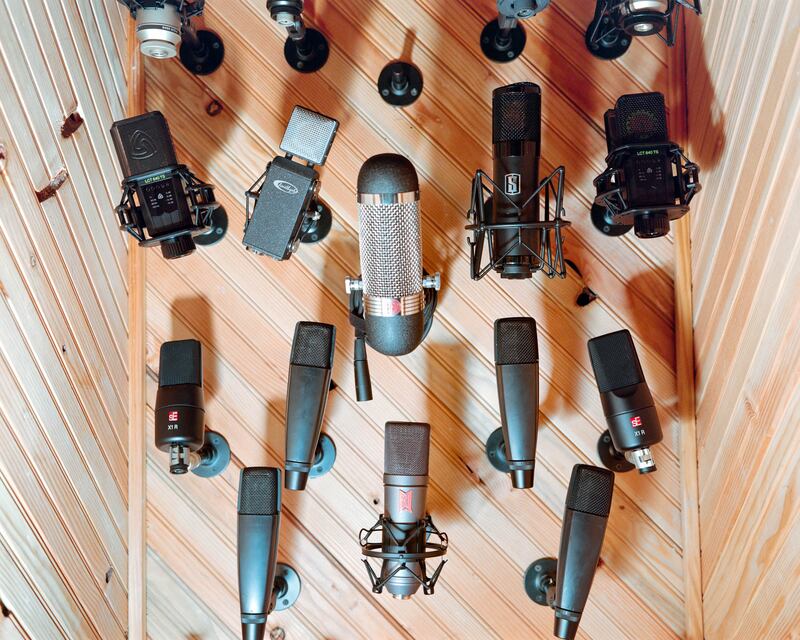Aviel Calev Hirschfield, the Portland hip-hop artist and producer known as GoodbyeCalev, fielded a FaceTime call from his manager last June, telling him to go check his Instagram. He had been tagged in a post by none other than Beyoncé, the pop superstar who was, that morning, announcing her new album, Renaissance.
As Hirschfield quickly found out, his manager had shopped around one of his tracks, and it had been snapped up by Queen Bey and turned into “Heated,” a dance banger co-written by Drake.
“Time just sort of stopped for a minute,” Hirschfield says, sitting in his Multnomah Village recording studio next to a plaque commemorating Renaissance going platinum. “It was this shocking moment. I’ve been doing this a while and been pretty successful in it, but nothing like that. Ever.”
Everything that Hirschfield, 30, envisioned in the minutes after getting the news has come to pass. His first No. 1 album. His first million-seller. His first trip to the Grammy Awards last weekend, where Renaissance won Dance Album of the Year. (To the consternation of just about everybody, Beyoncé lost to Harry Styles for Album of the Year.)

All these accolades are the culmination of years of work by Hirschfield, who got his start as a rapper in the early ‘00s. He soon evolved into a producer and engineer, working with a who’s who of the Oregon hip-hop and R&B scene and grabbing some lucrative commercial work.
While that allowed him and his partners in DB Nation Recordings to open up their home base in Southwest Portland, “Heated” has leveled things up considerably. The money he’s received for the track has been funneled right back into the studio to pay for new gear like the massive Moog synth he was using to add texture to a track from an up-and-coming R&B singer. And somehow, amid all the hubbub surrounding the success of Renaissance, Hirschfield has remained remarkably level-headed.
“I had a conversation with Deniro Farrar,” he says, referring to the North Carolina-bred rapper who moved here recently, “and when all this happened, he said, ‘Remember that your music was great before this. This is not what makes your music good.’ I just try and remember that.”
